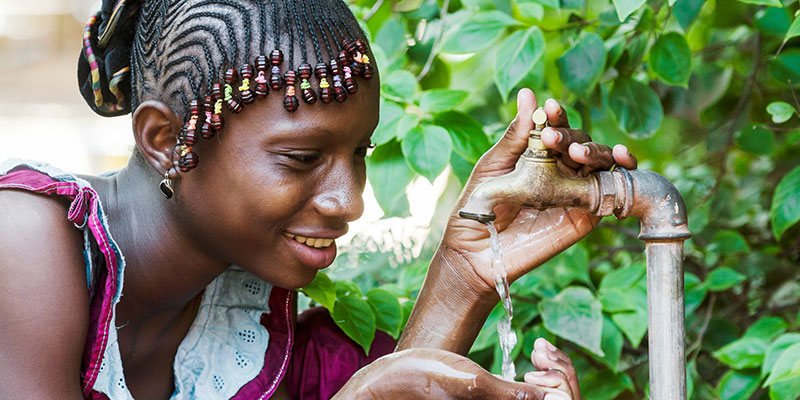To build water resilience, cities in Africa might need to look beyond conventional water sources and start diversifying their water supply, including recycling treated wastewater.
Some 63% of cities below the Sahara lack adequate water and sanitation. How can we offer more equitable access?
The population in African cities is expected to double by 2050 to 1.5 billion, according to a report published by the World Economic Forum in conjunction with the World Resources Institute. African cities typically include sprawling, informal settlements that lack proper housing and infrastructure, or basic services such as water and sanitation. These challenges are likely to be exacerbated as urban areas rapidly expand.
The urban sprawl, together with severe weather events such as droughts and floods, probably will lead to the deterioration of natural water systems. Dwindling sources and the lack of access to basic water services pose a growing threat to water security. Climate change will make things worse.
With a little forward thinking and planning, though, it is possible to find solutions to these challenges and build water resilience in African cities, many yet to be built.
The report highlights three ways Africa can improve water security in urban areas:
- Cities need to change their approach to planning water infrastructure, striving for more sustainable, long-term solutions.
- City managers need to prioritize providing vulnerable communities with access to safe drinking water and sanitation.
- Cities need to invest wisely in water infrastructure.
Diversifying Water Supplies
To build water resilience, cities can look beyond conventional water sources. Coastal cities, for example, may want to consider desalination of seawater. Another readily available source is wastewater that has been treated for reuse. Advanced treatment technologies now make this a feasible and cost-effective way to address water scarcity challenges.
With a population of more than 59 million people, South Africa is the most populated nation in sub-Saharan Africa. It attracts migrants from poorer countries in the region who come in search of work and a better life. Several cities across the country, including Cape Town and Nelson Mandela Bay, have faced the prospect of running out of water.
Ways to Use Wastewater
While recycling wastewater would solve many of these issues, public perception of the idea in South Africa is a challenge. Yet its next-door neighbor, Namibia, a primarily desert nation with limited natural water resources, has been recycling wastewater into drinking water for more than 50 years.
Wastewater can be recycled and reused in ways besides drinking water, including irrigation, cooling, and other water-intensive practices. That reduces the pressure on limited freshwater sources that serve as drinking water supplies.
Investing in Water Infrastructure
Diversifying water supplies builds resilience, but it requires extensive financial investment in water infrastructure. This poses another challenge to African cities, as most lack the funding for such water projects. Fluence offers a way for local city managers to overcome these obstacles.
Fluence’s Water Management Services provides plants for decentralized desalination, freshwater treatment, and wastewater treatment. The plants require no upfront investment or maintenance costs. Fluence will finance, construct (or upgrade an existing plant), and operate the water or wastewater treatment plants, and only collect payment for the water used.
Fluence’s modular NIROBOX™ desalination and freshwater treatment plants, and Aspiral™ wastewater treatment plants, are packaged inside a standard shipping container, allowing them to be shipped anywhere. As self-contained, decentralized systems, they are deployed right where they are needed and do not require expensive piping to link with city infrastructure.
The plug-and-play systems are scalable, should water needs fluctuate. Our packaged water and wastewater treatment systems offer the perfect solution for providing communities across Africa with access to safe drinking water and sanitation.
Contact Fluence to find out how we can help improve your water resilience strategy and finance the water infrastructure you need.

